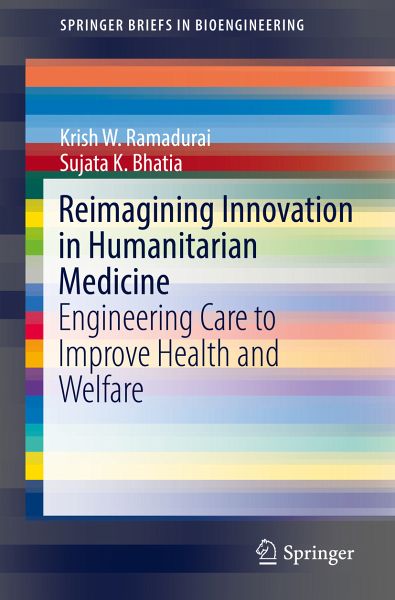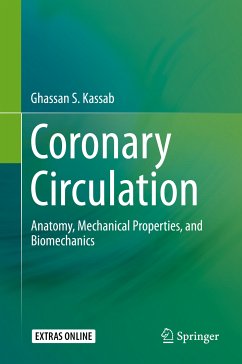
Reimagining Innovation in Humanitarian Medicine (eBook, PDF)
Engineering Care to Improve Health and Welfare
Versandkostenfrei!
Sofort per Download lieferbar
40,95 €
inkl. MwSt.
Weitere Ausgaben:

PAYBACK Punkte
20 °P sammeln!
Throughout history, humanity has been plagued by a myriad of humanitarian crises that seemingly take the form of perpetual human suffering. Today, approximately 125,000,000 people require humanitarian assistance as the result of famine, war, geopolitical conflict, and natural disasters. A core component of this suffering is afflictions related to human health, where disturbances strain or overwhelm the existing healthcare infrastructure to create the conditions for an increase in morbidities and co-morbidities. One of the more startling elements is the loss of life to preventable medical condi...
Throughout history, humanity has been plagued by a myriad of humanitarian crises that seemingly take the form of perpetual human suffering. Today, approximately 125,000,000 people require humanitarian assistance as the result of famine, war, geopolitical conflict, and natural disasters. A core component of this suffering is afflictions related to human health, where disturbances strain or overwhelm the existing healthcare infrastructure to create the conditions for an increase in morbidities and co-morbidities. One of the more startling elements is the loss of life to preventable medical conditions that were not properly treated or even diagnosed in the field, and is often due to the limited interventional capacity that medical teams and humanitarian practitioners have in these scenarios. These individuals are often hindered by medical equipment deficiencies or devices not meant to function in austere conditions.
The development of highly versatile, feasible, and cost-effective medical devices and technologies that can be deployed in the field is essential to enhancing medical care in unconventional settings.
In this book we examine the nature of the creative problem-solving paradigm, and dissect the intersection of frugal, disruptive, open, and reverse innovation processes in advancing humanitarian medicine. Specifically, we examine the feasible deployment of these devices and technologies in unconventional environments not only by humanitarian aid and disaster relief agencies, but also by crisis-affected communities themselves. The challenge is complex, but the financial support and technical development of innovative solutions for the delivery of humanitarian aid is a process in which everyone is a stakeholder.
Dieser Download kann aus rechtlichen Gründen nur mit Rechnungsadresse in A, B, BG, CY, CZ, D, DK, EW, E, FIN, F, GR, HR, H, IRL, I, LT, L, LR, M, NL, PL, P, R, S, SLO, SK ausgeliefert werden.
Alle Preise in Euro und inkl. der gesetzl. MwSt. | Innerhalb Deutschlands liefern wir preisgebundene Bücher versandkostenfrei. Weitere Informationen: bitte hier klicken
Support
Bitte wähle dein Anliegen aus:
Rechnungen
Bestellstatus
Retourenschein
Storno












